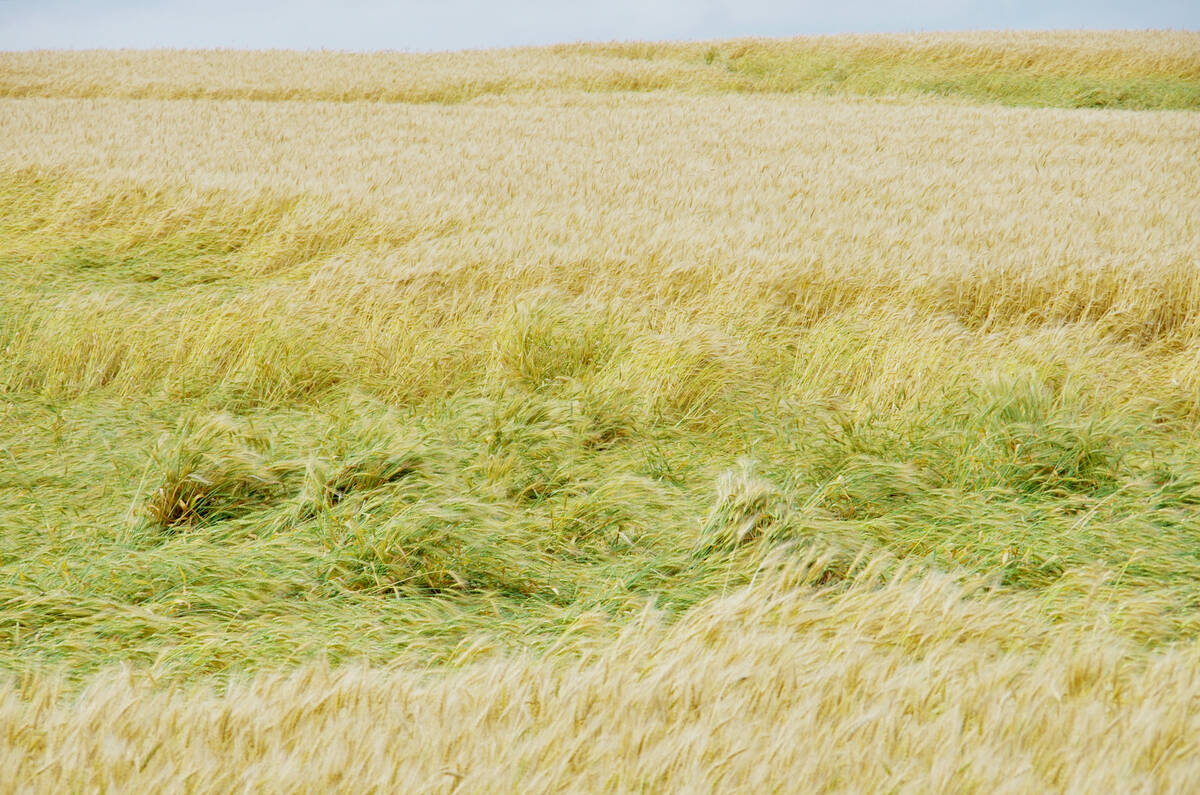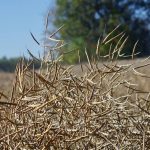In early December, I had the pleasure of taking in a talk by Canadian Football League Commissioner Randy Ambrosie, at Cavalier, Sask. (just north of Meota). Cavalier Agrow was holding its annual agronomy day, and Ambrosie delivered the keynote.
Ambrosie played for the University of Manitoba before being drafted as an offensive guard with the Calgary Stampeders. He also played for Toronto and Edmonton, and had a post-football career as an executive in finance before returning to the CFL. He had plenty of funny stories from his football career. The one that stuck with me the most was his story of playing against Robert Weir, a giant Toronto Argonaut who also happened to be a hammer throw champ. Weir would simply throw Ambrosie and his teammates when they faced off.
Read Also

Cereal lodging isn’t just a nitrogen problem
Lack of copper in the soil can also lead wheat and other cereal crops to lodge during wet seasons on the Canadian Prairies.
Afterwards, I did a little research on Bob Weir. Weir originally hailed from Birmingham, U.K. He placed first in hammer throw at the 1982 Commonwealth Games in Brisbane, Australia, and first in discus at the 1998 Commonwealth Games in Malaysia. He also competed in several other international competitions over 20 years, including the Olympics. His daughter, Jillian Weir, is now a Canadian hammer thrower. She played on a college team in Oregon, and competed internationally last May.
A couple of decades ago, Bob Weir was a formidable addition to the defensive line. Ambrosie and his teammates weren’t sure how to handle him at first. They couldn’t match his strength, and they didn’t enjoy being tossed around the field.
But eventually someone figured it out. The way to overcome Weir, Ambrosie said, was to keep him moving, so he couldn’t plant his feet. It’s just one example of how football teams come up with strategies to get around whatever their opponents throw at them.
Football has evolved over the years, and more changes are underway. Ambrosie told us about how the CFL decided to change the rules around challenges, and new rules around practices to try to cut concussions.
Adapting to change
Change is a constant in agriculture, too. I don’t envy farmers for the Bob Weir-type challenges they face these days. Market fluctuations, herbicide resistance, crop and livestock diseases, consumer perceptions, land prices, international trade issues, and weather are just a few of the variables that affect farms. Keeping up with rapidly evolving technology and figuring out how best to apply it to the farm is another big one.
There’s no ignoring the challenges and opportunities that change brings. But at the same time, trying to adopt every piece of new technology or implementing every potential change on a farm would be crazy-making, and likely lead to bankruptcy. So how does a person successfully adapt to a changing world without losing all focus?
Farmers have been putting this into practice for years, and many readers would know much more about it than I do. But I imagine readers must have to think about what they’re good at as farmers, what the risks are, and how to cover those risks. The end results vary between farms. Some might run mixed farms, or maybe add seed cleaning or grain trucking or some other income stream to the operation. Off-farm income from at least one spouse is also common and helpful.
Resourcefulness and adaptability are ingrained in the farming culture, and it’s one of the agriculture sectors’ biggest strengths. Several generations of farmers and livestock producers have survived and learned from all kinds of disasters. Today’s producers have generations of experience to draw on.
That doesn’t mean that any farm is immune to failure. And it’s impossible to know what everything that lies in store for producers. But I can’t think of a group of people better suited to survive and adapt when Fate hammer throws them.
















